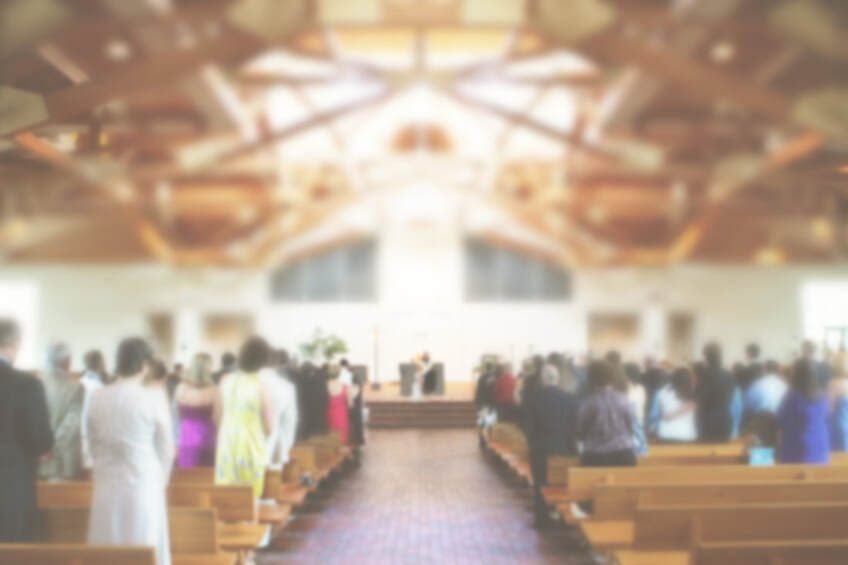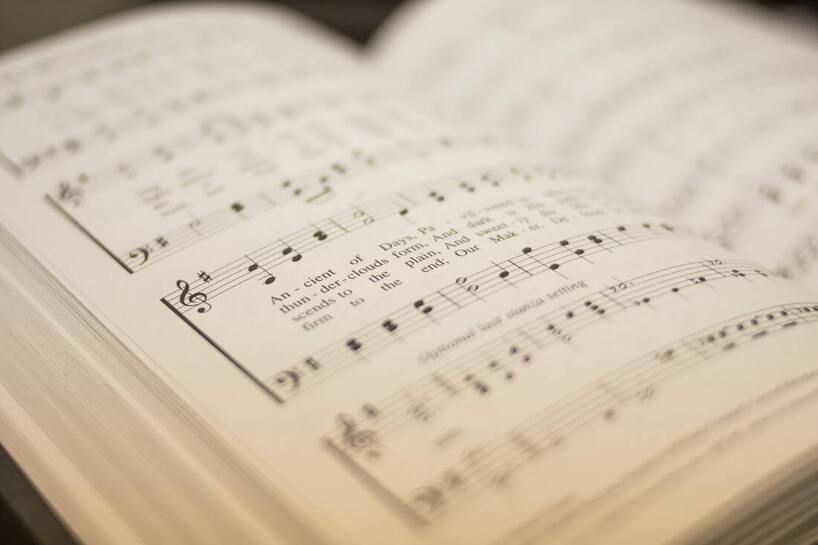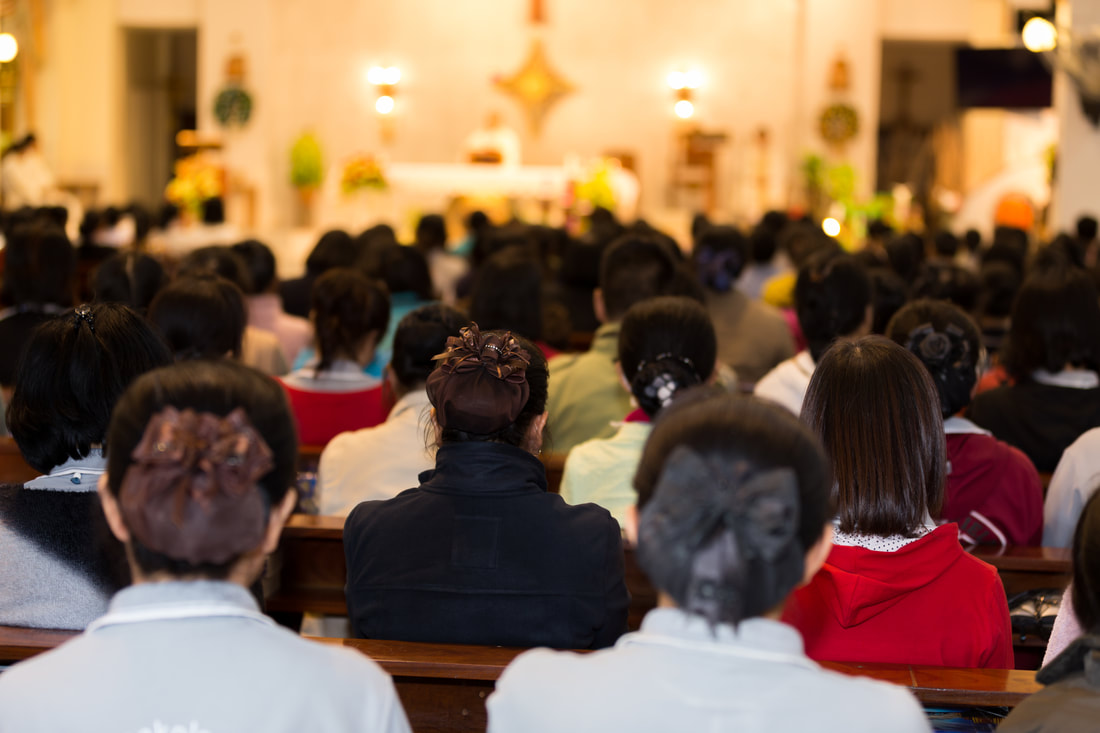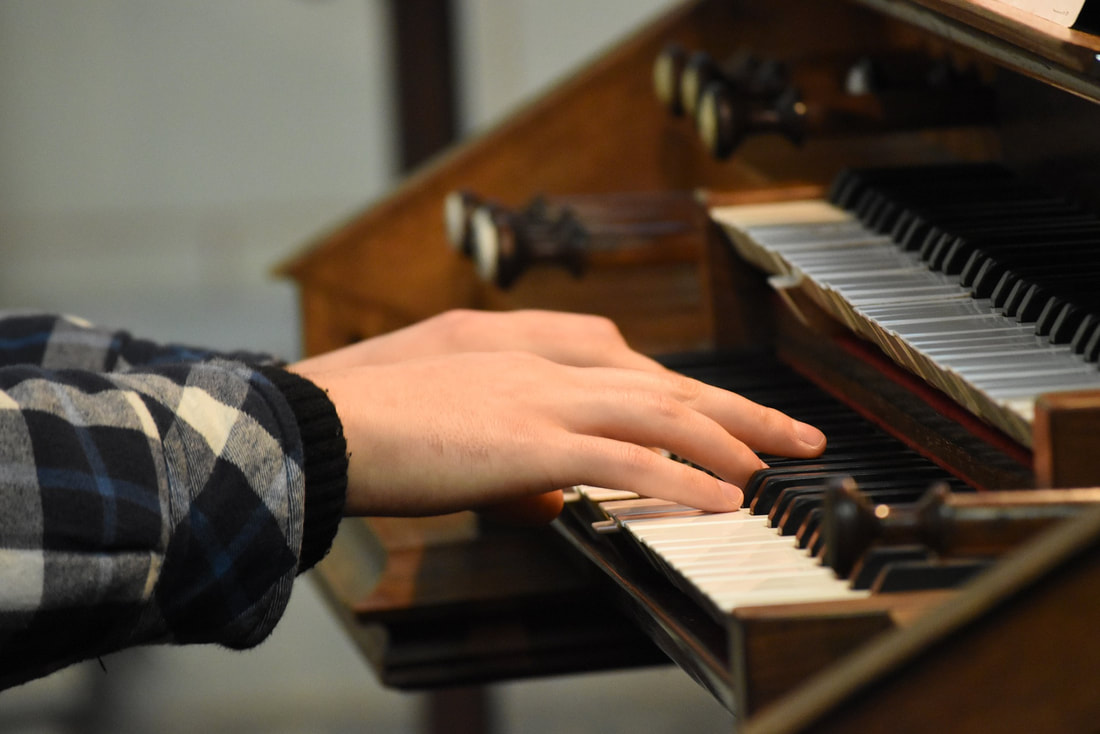5 tips for effective music ministry
By John K. Tyler
Prayer, not performance
While liturgical prayer is a multisensory experience, it is important to be mindful that music ministry is rooted in prayer, not performance. “Sing to the Lord: Music in Divine Worship,” a document issued by the United States Conference of Catholic Bishops, reminds us of this reality: “The role of music is to serve the needs of the Liturgy and not to dominate it, seek to entertain, or draw attention to itself or the musicians.”
While we certainly always want to make music to the best of our abilities, liturgical music is not about us. Rather, as liturgical musicians we are called to use our gifts to help the gathered assembly participate more fully in the liturgy and grow in relationship with God. Quite the responsibility, isn’t it? This is the fundamental difference between prayer and performance. Our music must serve the liturgy. If what we do seems to dominate the prayer experience or draw unnecessary attention to ourselves, it might be time to reevaluate.
While liturgical prayer is a multisensory experience, it is important to be mindful that music ministry is rooted in prayer, not performance. “Sing to the Lord: Music in Divine Worship,” a document issued by the United States Conference of Catholic Bishops, reminds us of this reality: “The role of music is to serve the needs of the Liturgy and not to dominate it, seek to entertain, or draw attention to itself or the musicians.”
While we certainly always want to make music to the best of our abilities, liturgical music is not about us. Rather, as liturgical musicians we are called to use our gifts to help the gathered assembly participate more fully in the liturgy and grow in relationship with God. Quite the responsibility, isn’t it? This is the fundamental difference between prayer and performance. Our music must serve the liturgy. If what we do seems to dominate the prayer experience or draw unnecessary attention to ourselves, it might be time to reevaluate.
Representation matters
The Irish author James Joyce remarked, perhaps jokingly, that Catholic means “here comes everybody.” We are abundantly blessed by the rich diversity of people within our individual and universal communities, but unfortunately what we sing and pray does not always reflect this gift. For far too long the liturgical landscape has been dominated by composers who do not necessarily reflect the diversity of the church.
When preparing the liturgy, we should be intentional about selecting music from a variety of composers. Take a look at one of your recent planning pages. How many female composers are included? How many pieces were written by people of colour? Do we honour the voices of the LGBTQ community? Whose voices are upheld? Whose voices are ignored?
Attention to these details is not some nicety but rather a concrete way to ensure the varied voices of the church are celebrated. Working toward better representation in repertoire does not happen overnight or without challenges. Naming and being mindful of this reality is an important step toward celebrating inclusive liturgy.
The Irish author James Joyce remarked, perhaps jokingly, that Catholic means “here comes everybody.” We are abundantly blessed by the rich diversity of people within our individual and universal communities, but unfortunately what we sing and pray does not always reflect this gift. For far too long the liturgical landscape has been dominated by composers who do not necessarily reflect the diversity of the church.
When preparing the liturgy, we should be intentional about selecting music from a variety of composers. Take a look at one of your recent planning pages. How many female composers are included? How many pieces were written by people of colour? Do we honour the voices of the LGBTQ community? Whose voices are upheld? Whose voices are ignored?
Attention to these details is not some nicety but rather a concrete way to ensure the varied voices of the church are celebrated. Working toward better representation in repertoire does not happen overnight or without challenges. Naming and being mindful of this reality is an important step toward celebrating inclusive liturgy.
Words matter
Text is important. The words we sing shape our understanding of God and ourselves. Just like intentionality is important when selecting composers, we must also deliberately choose text that represents the realities of our church and world. “Sing to the Lord” emphasises this point, noting that texts must be doctrinally sound and express beliefs that are true of the Catholic faith. This is the relatively easy part, for we would never intentionally sing a text that denies Christ or suggests a nontrinitarian God.
It is much more difficult, however, to include texts that speak the very real needs of our time. Do our texts denounce racism and bigotry and uphold the unity to which we are called? Do they mention the pains of abuse of leadership in our church, country, and world? Do they call us to steward the environment, work for economic justice, and build up the kingdom of God in our midst? As music ministers we must dare to be prophetic. Jesus made it abundantly clear in the gospels that we do not pray in a vacuum. Are we willing to follow this example? Because of the incarnation, the God we worship is intimately present in these realities.
Spend time in the pews
It might sound strange, but liturgical ministers should spend time not ministering. Accompanists, cantors, choir members, and even music directors should regularly participate as intentional members of the gathered assembly. While music ministers are always part of the gathered assembly, we can gain important insight when we pray from the pew instead of from the organ bench or choir loft.
This is important for two reasons. First, we must be intentional about cultivating our own prayer life. Praying without explicitly ministering gives us the opportunity to be attentive to God in new ways. Second, spending time not ministering allows us to participate from the congregation’s perspective, giving us the chance to see and hear new things. We might learn that the voice of a certain psalmist is constantly being overpowered by the piano or see more closely how the assembly responds to a new hymn or song. Spending time not ministering allows for both prayer and perspective.
It might sound strange, but liturgical ministers should spend time not ministering. Accompanists, cantors, choir members, and even music directors should regularly participate as intentional members of the gathered assembly. While music ministers are always part of the gathered assembly, we can gain important insight when we pray from the pew instead of from the organ bench or choir loft.
This is important for two reasons. First, we must be intentional about cultivating our own prayer life. Praying without explicitly ministering gives us the opportunity to be attentive to God in new ways. Second, spending time not ministering allows us to participate from the congregation’s perspective, giving us the chance to see and hear new things. We might learn that the voice of a certain psalmist is constantly being overpowered by the piano or see more closely how the assembly responds to a new hymn or song. Spending time not ministering allows for both prayer and perspective.
Be sure to mentor
I’ll never forget the day I asked Mrs. Rojek if I could play piano at Mass for the first time. I was in sixth grade, incredibly nervous, and prepared for rejection. “Are you possibly singing this song tomorrow? And, if you are, can I maybe play it?” I never could have imagined that accompanying the choir on “We Come to Your Feast” that Thanksgiving would be the beginning of a life of liturgical music ministry. Mrs. Rojek continued to encourage me to play, both affirming me and challenging me to grow. She believed in me, trusted me, and saw a gift that I wasn’t ready to see on my own.
If we don’t empower others by nurturing their gifts, especially those young people who are yearning to be involved, we miss an important opportunity. It takes time and effort to mentor. But if liturgy is the work of the people, we must make sure it is the work of all the people—children, teenagers, and young adults included. I am forever grateful for all those who have served as liturgical music mentors for me. I do what I do because of them.
I’ll never forget the day I asked Mrs. Rojek if I could play piano at Mass for the first time. I was in sixth grade, incredibly nervous, and prepared for rejection. “Are you possibly singing this song tomorrow? And, if you are, can I maybe play it?” I never could have imagined that accompanying the choir on “We Come to Your Feast” that Thanksgiving would be the beginning of a life of liturgical music ministry. Mrs. Rojek continued to encourage me to play, both affirming me and challenging me to grow. She believed in me, trusted me, and saw a gift that I wasn’t ready to see on my own.
If we don’t empower others by nurturing their gifts, especially those young people who are yearning to be involved, we miss an important opportunity. It takes time and effort to mentor. But if liturgy is the work of the people, we must make sure it is the work of all the people—children, teenagers, and young adults included. I am forever grateful for all those who have served as liturgical music mentors for me. I do what I do because of them.
This article appears in the April 2021 issue of U.S. Catholic (Vol. 86, No. 4, pages 29-30).
It can also be viewed at U.S. Catholic online.
Images from Unsplash and Pixabay. Used under license/with permission.
It can also be viewed at U.S. Catholic online.
Images from Unsplash and Pixabay. Used under license/with permission.





